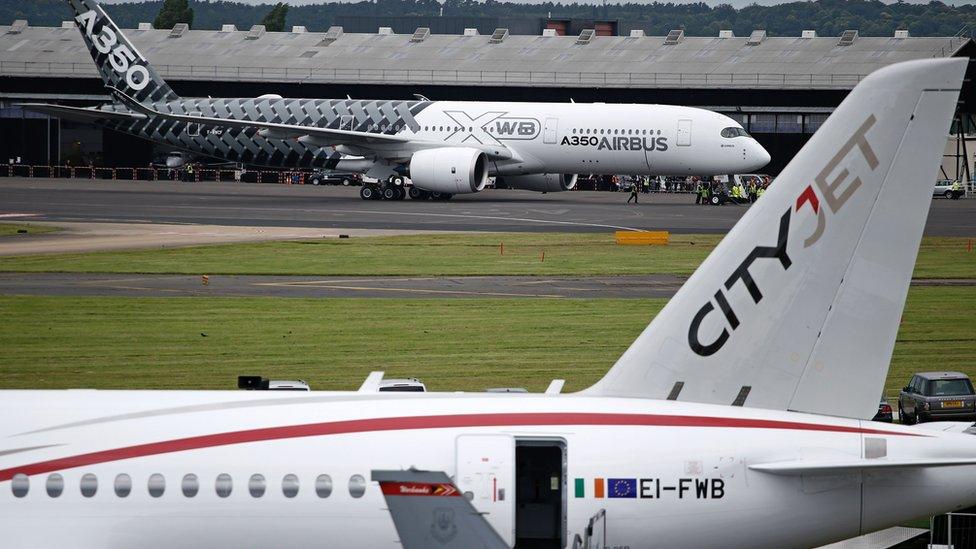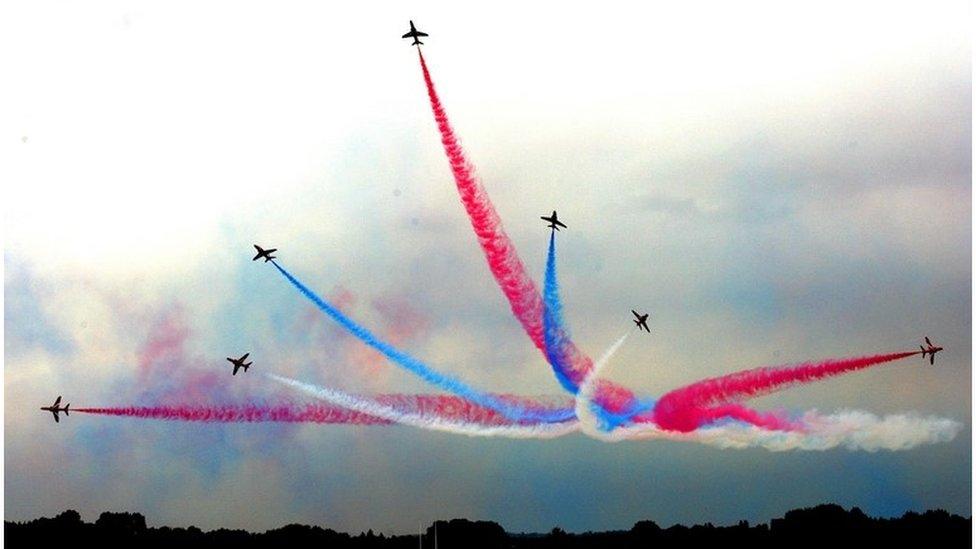Coronavirus: Farnborough and RAF Fairford air shows cancelled
- Published

Billions of pounds worth of business deals are concluded at Farnborough International Airshow
Two major summer aviation events have been cancelled due to the coronavirus outbreak.
Farnborough International Airshow and the Royal International Air Tattoo at RAF Fairford in Gloucestershire were both due to take place in July.
The Farnborough trade event attracts 80,000 visitors while the tattoo is the UK's biggest military aviation event.
Organisers said they did not want to distract emergency services from dealing with the crisis.
The five-day Farnborough International Airshow was scheduled to begin on 20 July at the Hampshire airport.
Organisers of the trade show blamed the "unprecedented impact" of the pandemic for the decision and said the biennial event would return in 2022.
It is the UK's biggest commercial aerospace event - the 2018 show saw £145.7bn ($192bn) worth of deals concluded, with more than 1,500 exhibitors and 80,000 visitors from 112 countries.
A statement said the decision to cancel would be an "incredible disappointment" to the aviation industry.
"This decision was reached taking into consideration several major factors surrounding the outbreak of COVID-19, all of which we have concluded make it impossible for us to create and host the air show this July," organisers said.

The Royal International Air tattoo attracts up 100,000 visitors
This year's event would have been the first since its announcement that it was ending its public air displays due to what organisers said was a "dwindling popularity" following the Shoreham air crash.
Organisers of the Royal International Air Tattoo - scheduled for 17-19 July - said their decision had "not been taken lightly".
The tattoo attracts up 100,000 visitors and is estimated to generate about £1.5m for the local economy.
A statement said the tattoo was reliant on medical professionals, military security teams and the emergency services, "many of whom are delivering a fundamental contribution to fighting this crisis".
It added: "We believe delivery of our event would distract them from this."